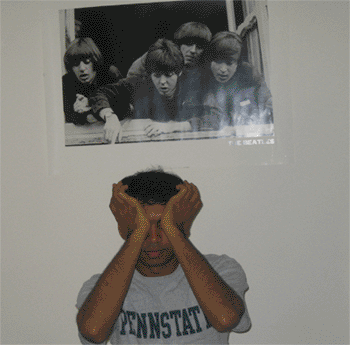identity unknown
An interesting find from the stacks of a local B&N, "Identity and Violence" by Amartya Sen, the nobel laureate, makes some arguments on the role of identity on the human behavior. Although, I haven't read the whole book, a perusal through some initial pages is enough to jot down some of my own (mis)understandings.
He defines two terms related to human indentity.
1) "Identity disregard - ignoring or neglecting altogether, the influence of any sense of identity with others, on what we value and how we behave..."
2) "Singular affiliation - takes the form of assuming that any person preeminently belongs, for all practical purposes, to one collectivity only - no more and no less."
Not surprisingly, he argues that the above two characteristics are very responsible for human behavior including today's widespread extremism. But he also counters that the choice of one particular identity (say religion) over another (say citizenship) is restricted by the demands, pressures and existing priorities.
He seems to be right since as I see in strongly traditional communities, the forced "singular affiliation" with it prevents us from affiliating strongly with any other existing identities that we have. This force is strongly manifested in form of social pressure. Evidently, it occurs to me that one particular identity that a human being is looking for is probably non-existent. And even so when one identifies herself with one particular identity, she finds herself (re)discovered. It probably is a matter of finding the one identity with the highest priority or rather finding that highest priority for a particular identity. However as we see today, it could be more than just a source of pride and probably mixed identities would serve us better than a strong orientation towards one.
Interestingly, Sen mentions a quote from E. M. Forster that says "If I had to choose between betraying my country and betraying my friend, I hope I should have the guts to betray my country". You can argue that it's probably easier to betray a friend because you don't require guts to do that. Notwithstanding the morality in question for such choices, each one of us can identify with perfidy for either.
But like Sen says "the freedom of choosing our identity in the eyes of others can sometimes be extraordinarily limited".


0 Comments:
Post a Comment
Subscribe to Post Comments [Atom]
<< Home